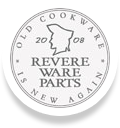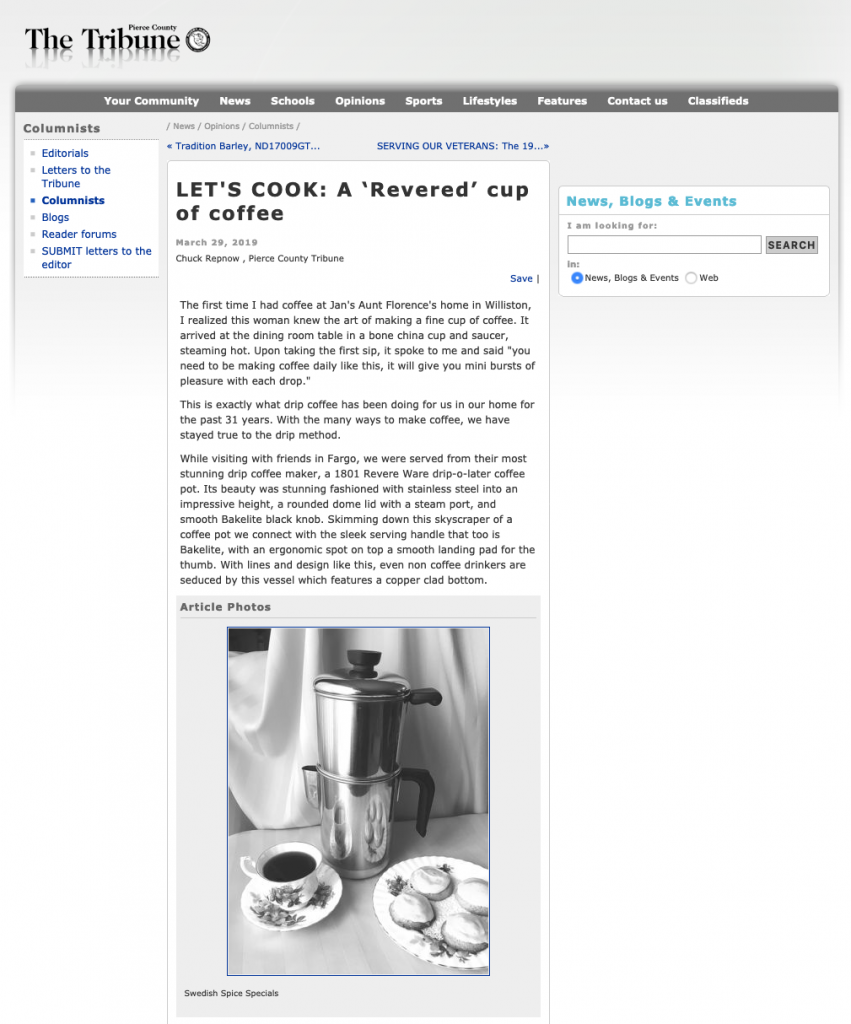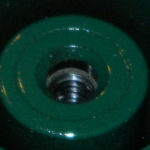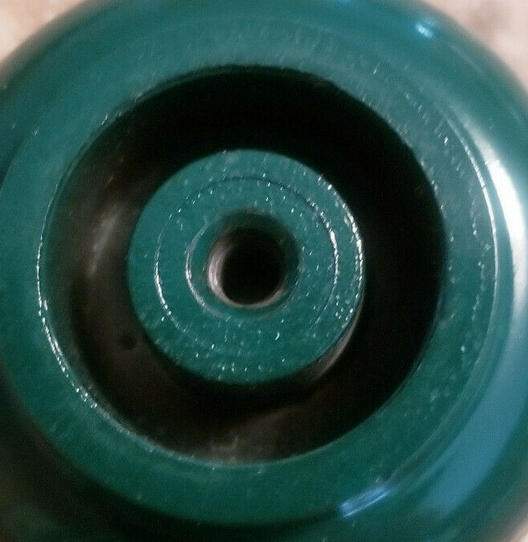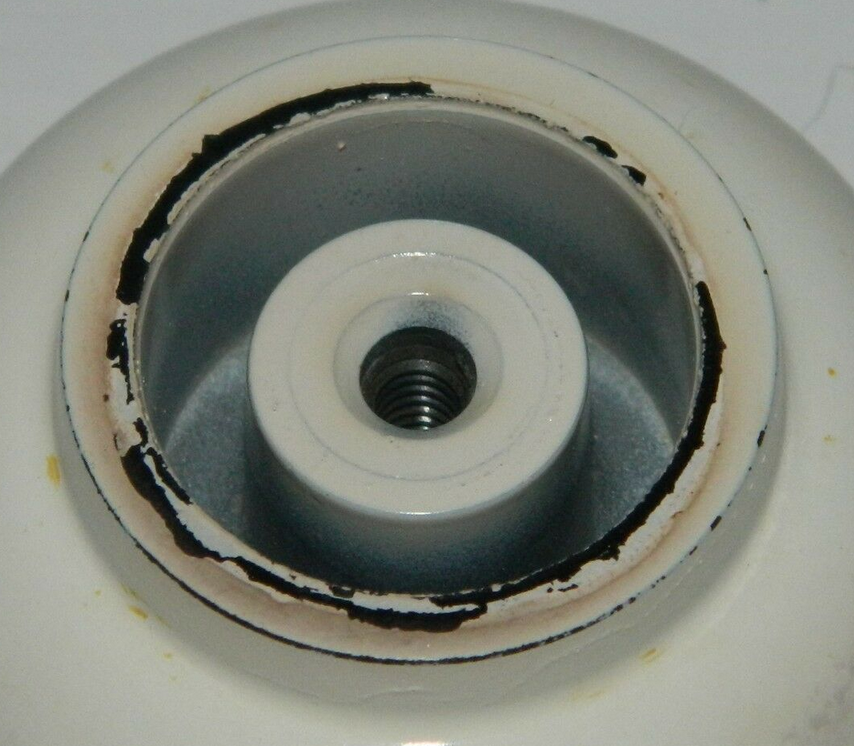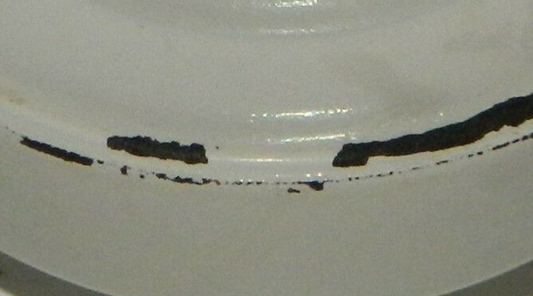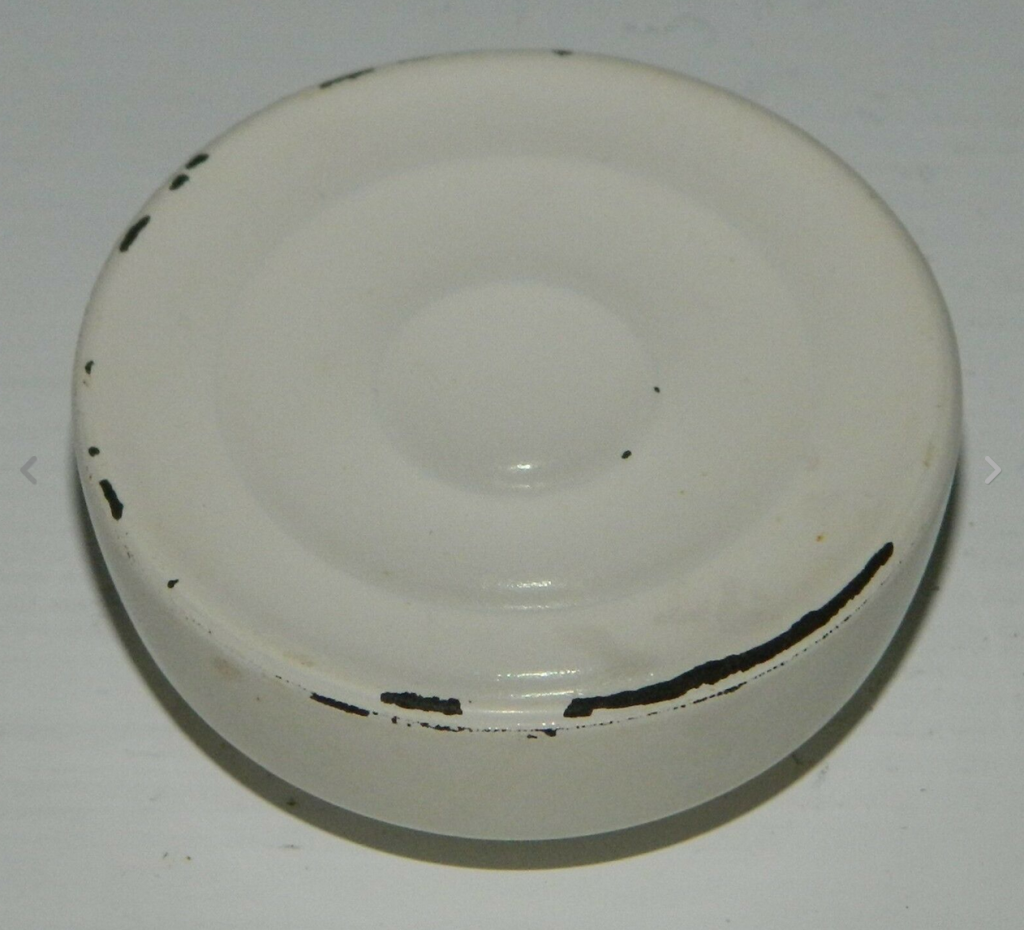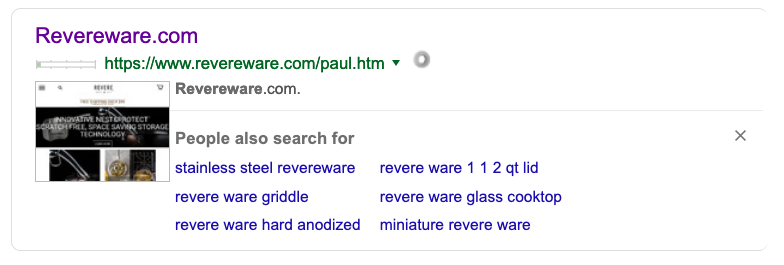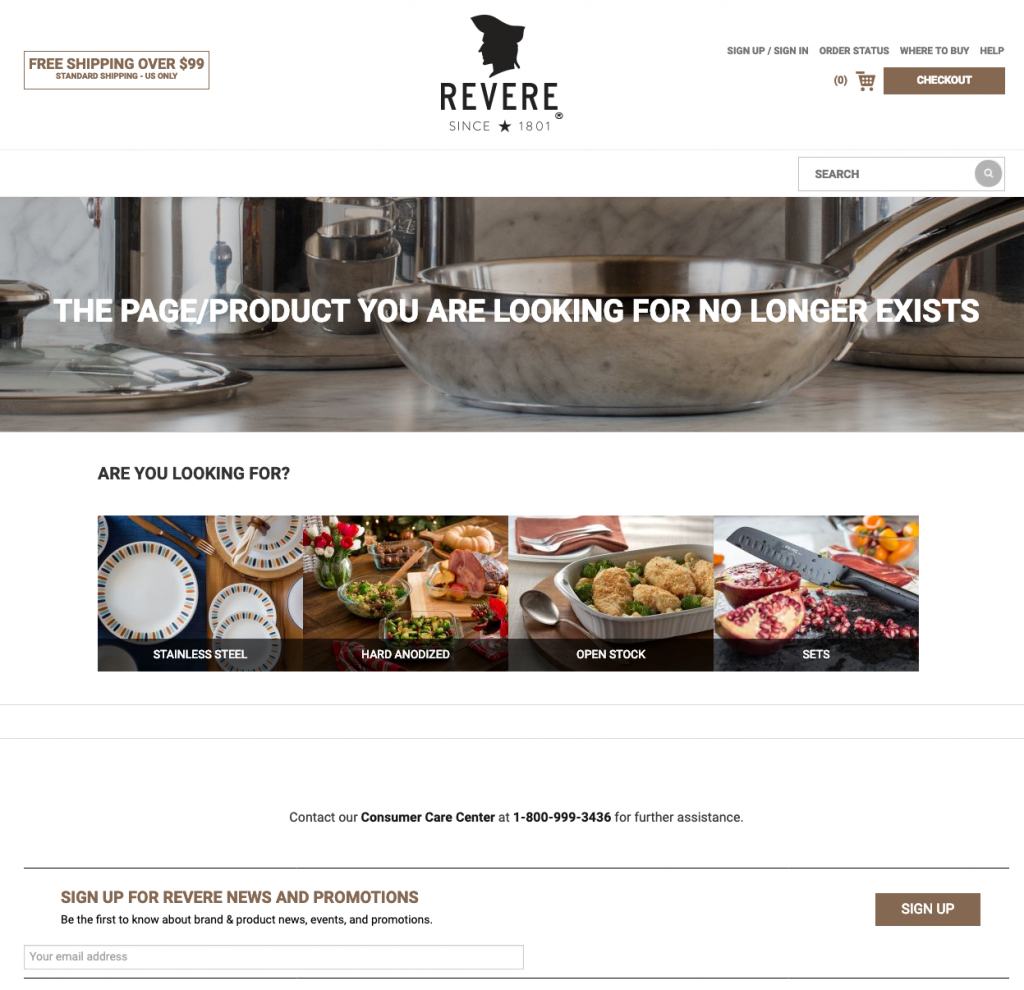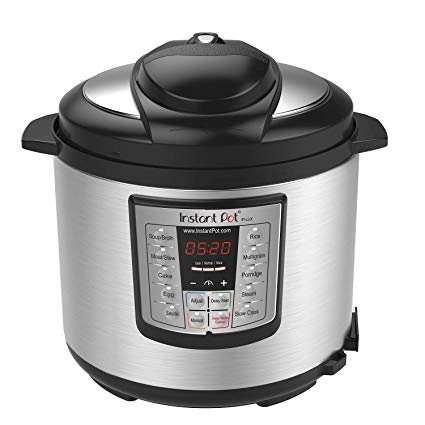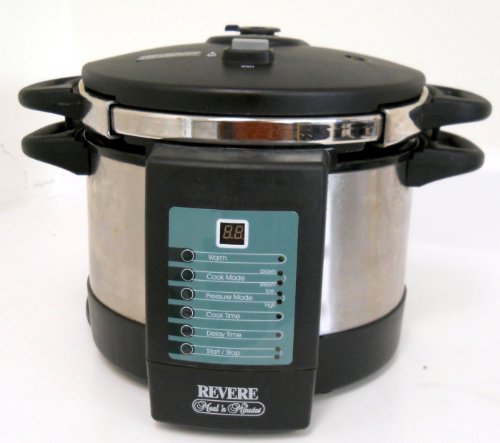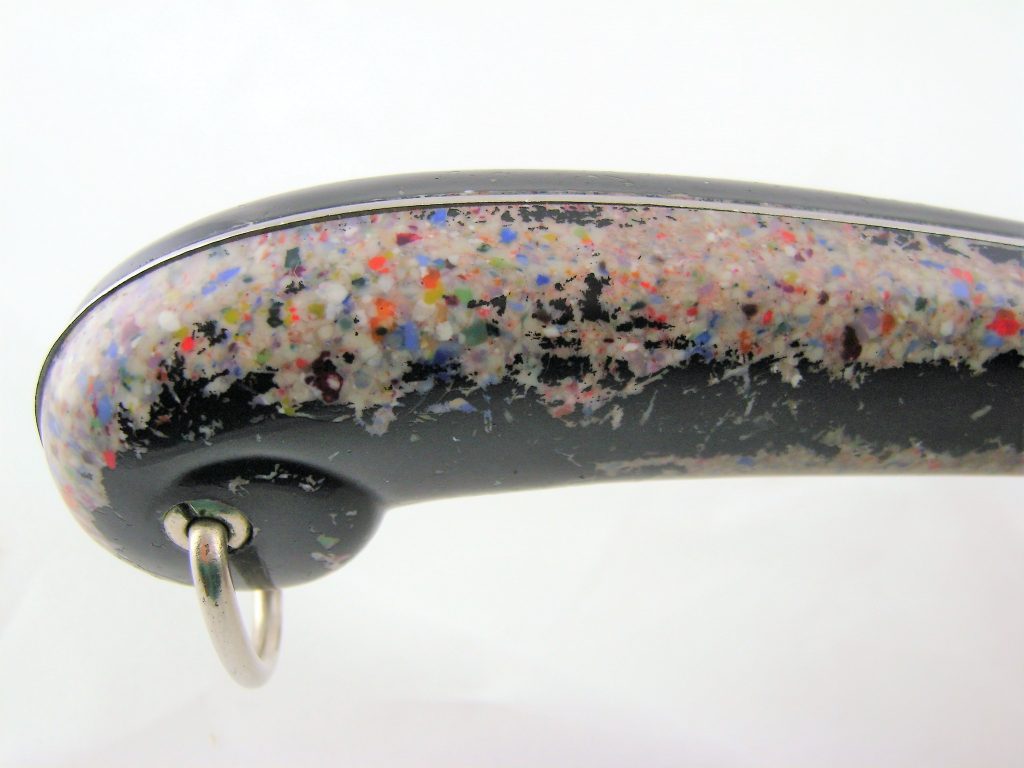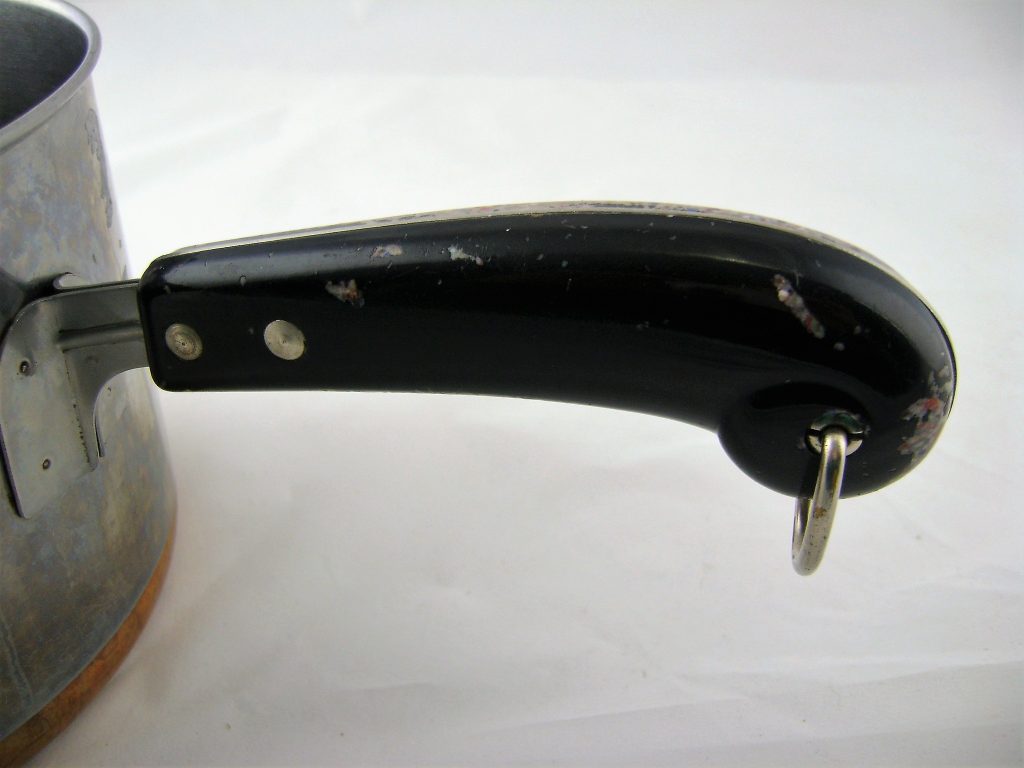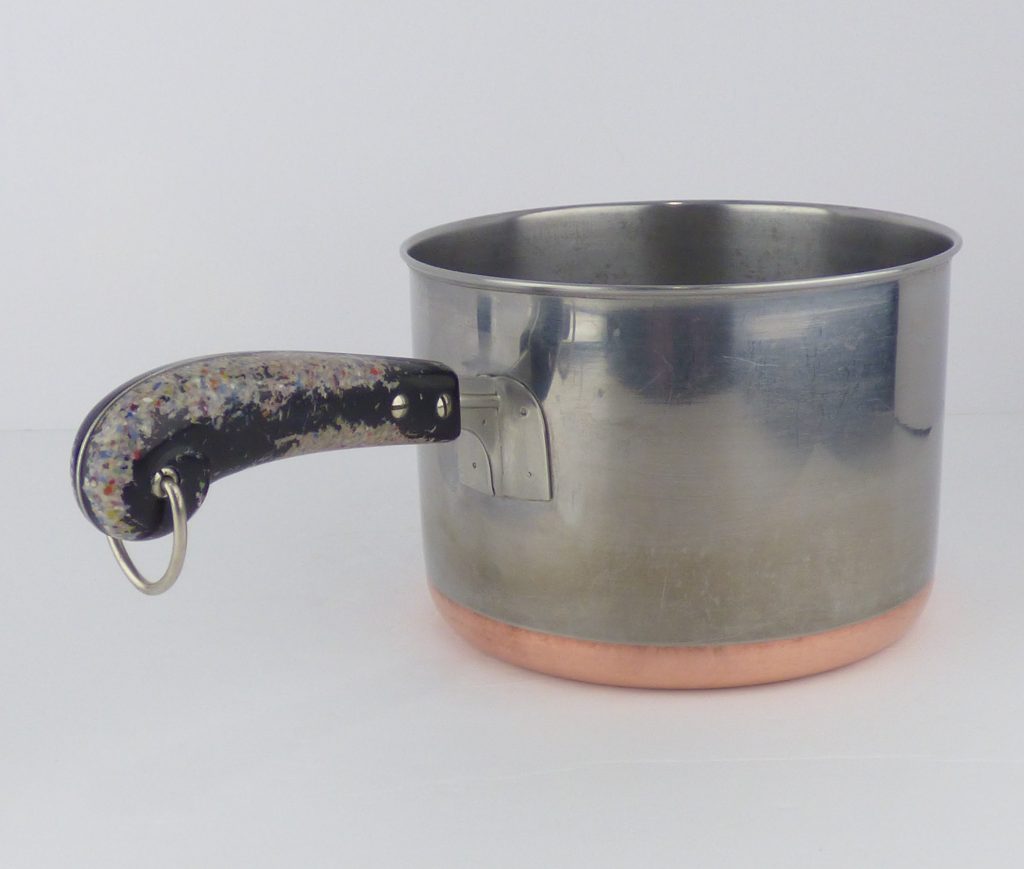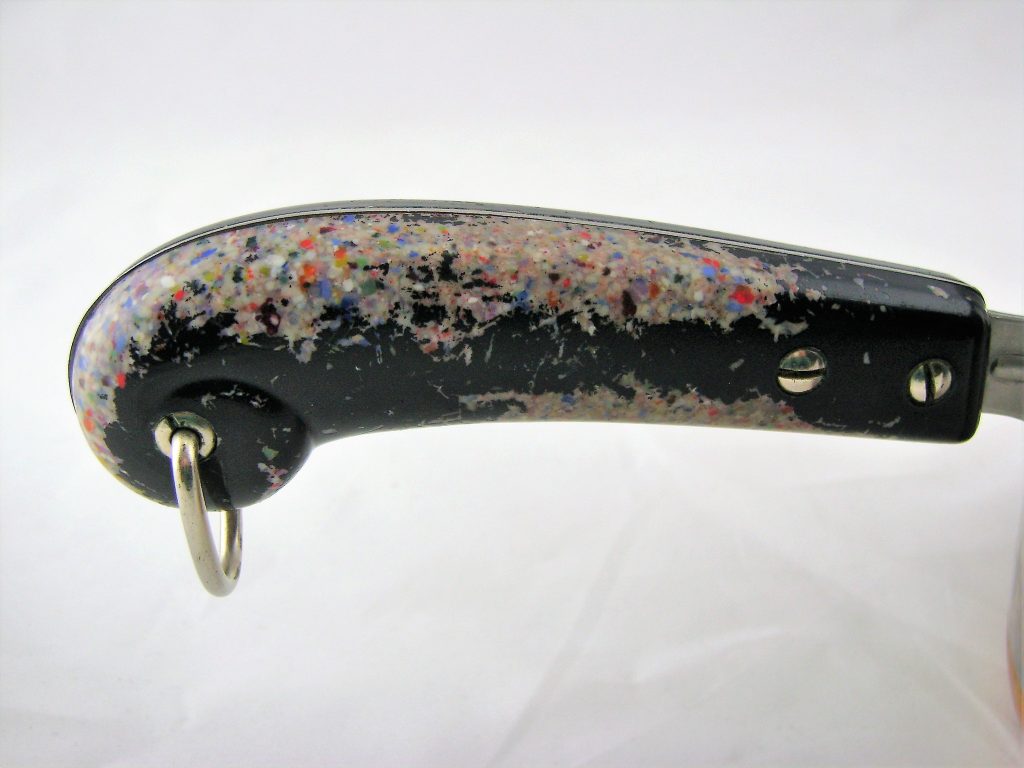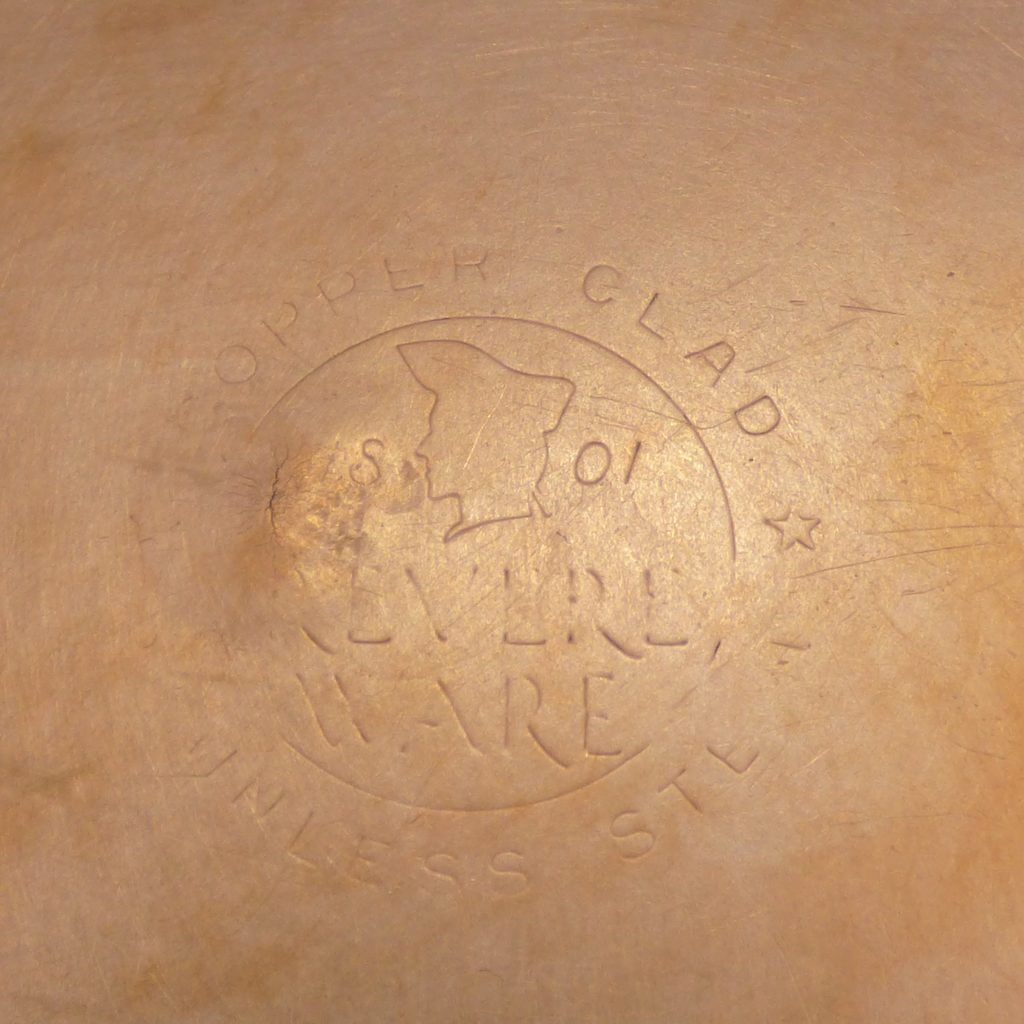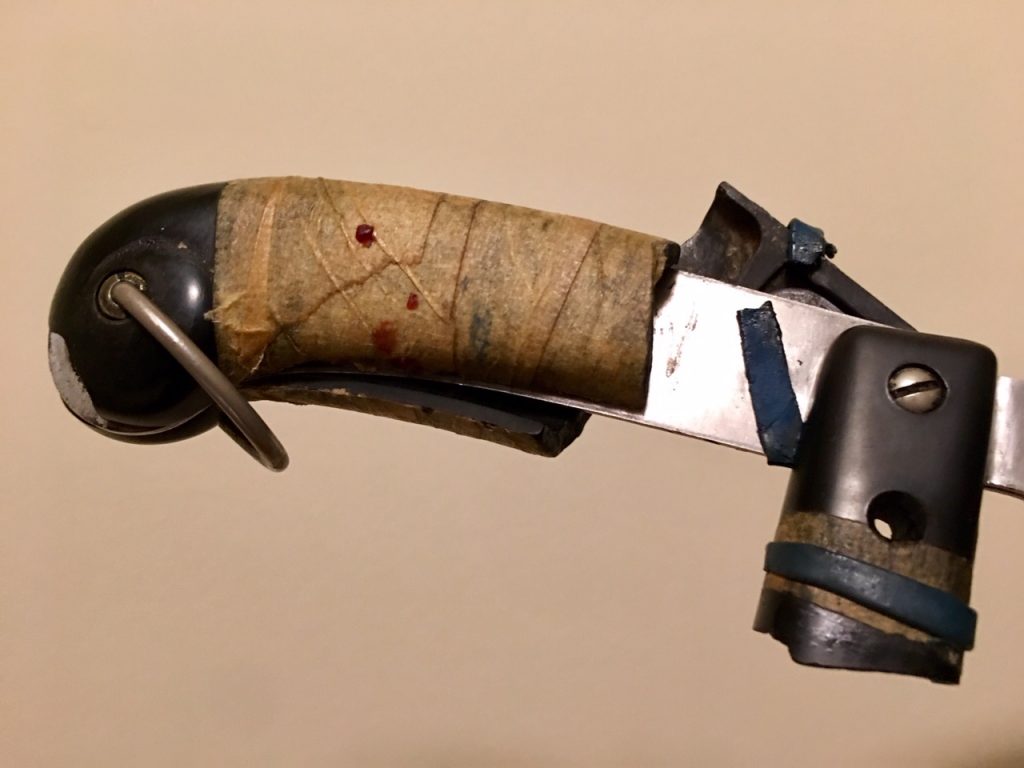When we think of overheating plastic, we think of plastic melting. But Bakelite is a little different. When overheated, it doesn’t melt, but instead breaks down into its constituent parts, one of which (formaldehyde) smells nasty, and isn’t good to inhale.
Bakelite is safe to 350 degrees Fahrenheit; putting it in an oven is not a good idea. The most common culprit for overheating is a gas stove where the flames are too high, and the lick up the sides of a sauce pan and heat the handles directly.
While we always assumed that overheating was the only ways to cause problems, there is at least one anecdotal report that once overheated, Bakelite may be sensitive to overheating at a lower temperature.
After many years steady use, I’m getting toxic fumes when I use them on anything but very low heat. It smells exactly like burnt plastic and the fumes seem unhealthful, not just smelly. I’m assuming it’s the handles, but they don’t seem degraded more than normal for their age. I do have a gas stove and tried lowering the flame, since the flames can lick around the edge of the pan and up toward the handles. But I am still getting the fumes strongly, even when the handles are very warm at all.
If you have the same issue, or if your handles have previously been overheated and seem sensitive to even lower heat, it is probably safest to replace your handles. If replacement isn’t an option (you have one that we don’t make) you might try restoring them as described here, being sure to remove any Bakelite that looks damaged, to get to undamaged Bakelite.
To to sure, Bakelite is known to be safe as it has been used on cookware, and many other products, for around 80 years. When used properly, there is no danger. But it does have the potential for misuse if it is used in the oven or on too high heat. It is better to be safe than sorry.
